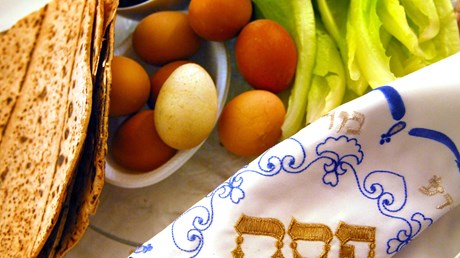Why Christians shouldn’t either.

Passover has a special allure for Christians. It is on the night of Passover, as all Israel is offering the pascal Lamb and eating matza (unleavened bread) and bitter herbs on the slopes of the Temple Mount in Jerusalem that Jesus of Nazareth meets with his 12 disciples for the Last Supper. This may be the best-known Passover meal.
Both of these meals—Jesus’s Last Supper and the first Passover meal—are launch events. Each of them inaugurates a new religious civilization. Thus, for the believing Christian, it is no coincidence that Jesus convenes the disciples at the very moment of the Passover meal to signal that this meal is the fulfillment of and successor to that first Passover meal, and that like the first one, the Last Supper inaugurates a new faith community. For most of Christian history, the celebration of the Lord’s Supper, the Eucharist, replaced the Jewish Passover Seder.For Jews, however, the most important Passover meal is the very first, described in Exodus 12. It is the meal by which Israel celebrates its liberation from the pagan culture of Egypt/Mitzrayim by serving the One God and bringing an offering to the One God. That first Passover meal is eaten home-by-home, family-by-family. The guest list consists of all the members of the family, men and women, old and young, wise and foolish, learned and ignorant, boys and girls. In other words, present at that first Passover offering was the whole Jewish family in all of its delight and complexity. When Jews today celebrate the Passover, they are reenacting that moment and connecting with all Jews across time and space who have been celebrating the Passover Seder for millennia.
The re-emergence of Christian interest in the Jewish Passover …
Source: Christianity Today Most Read